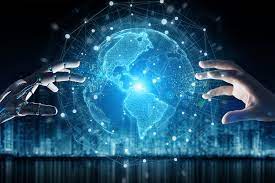


Biased data doesn’t just yield poor outcomes; it can also perpetuate suppression of vulnerable groups like women and minorities. Algorithms rely on data, often from the internet, to improve tasks like job screening and mortgage underwriting. Yet, this data frequently reflects real-world biases. For example, algorithms might favour male job applicants due to skewed job role demographics. These biases, stemming from historical myths, contribute to discrimination based on gender and sexual identity. Racism’s historical influence in society, particularly in privileging white males, likely infiltrates our technology. Instances abound, from misidentification of minorities by face recognition software to erroneous criminal justice and healthcare predictions.
Machines don’t lie?
Intrusive oppressive algorithms infiltrate every life facet. AI’s veneer of impartiality exacerbates the problem, evading responsibility. Silicon Valley titans perpetuate this faux objectivity, notwithstanding sporadic cautionary remarks. Unresolved legal and ethical quandaries arise, raising questions about culpability for AI errors. The intricate, inscrutable nature of AI presents substantial challenges to conventional legal frameworks centered on human accountability. Fundamental human rights are imperilled as technology obscures blame, permitting discrimination ascribed to machines. Racism, a systemic tactic, perpetuates societal hierarchies, constructing, legitimizing, and enforcing divisions between privileged and marginalized.
Ethical and legal vacuum
Amid a reality mired in uncertainty, safeguarding truth and privacy requires legal protection. Codifying the human right to privacy, encompassing both virtual and real-life data ownership, is vital to harness the positive potential of AI for human security. However, current reality finds innovators surging ahead while legislation lags behind, leaving an ethical and legal void that criminals exploit in this AI-driven world. Blind to history’s errors, we’re in a digital wild west without oversight, where tragedies unfold daily. It is time to counter the ethical, political and social costs with a concerted social movement in support of legislation. The first step is to educate ourselves about what is happening right now, as our lives will never be the same. It is our responsibility to plan the course of action for this new AI future. Only in this way can a good use of AI be codified in local, national and global institutions.